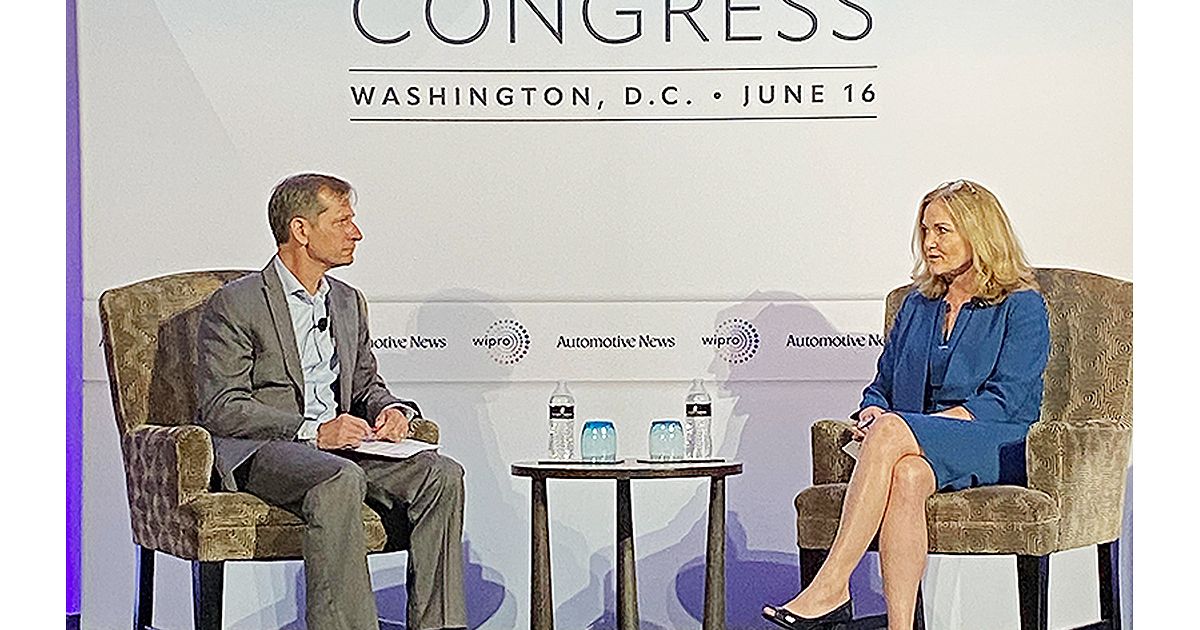
The impact of the USMCA trade deal has been difficult to measure given the multiple economic disruptions that have occurred since it went into effect in 2020, but the deal remains a vital enforcement tool for the auto industry and beyond, according to a policy expert.
Kellie Meiman Hock, managing partner at international trade consultancy McLarty Associates, said Thursday that the United States-Mexico–Canada Agreement, which replaced the North American Free Trade Agreement, has been effective in its early days at resolving some labor issues.
“USMCA is of a more enhanced importance right now from a trade perspective because it’s one of the few functioning dispute mechanisms that’s left,” Meiman told an audience at the Automotive News Congress in Washington. “You can’t go to the World Trade Organization right now because their dispute settlement system is not fully functioning. It puts a bit of a spotlight on us as North America and what we can continue to achieve.”
The deal includes changes to auto-specific rules of origin that require 75 percent of auto content for passenger vehicles and light trucks be made in North America. It also established — for the first time — a labor value content rule requiring 40 to 45 percent of auto content be made by workers earning at least $16 an hour.
USMCA also includes a rapid-response mechanism that allows immediate investigation of labor issues. While Meiman said there was some initial fear the mechanism could be implemented in an unfair way, the handful of cases that have been filed since the deal went into effect have worked out well.
“Overall, it’s been responsible and led to good results,” she said.
Elsewhere in the world, Meiman said she’s closely monitoring the Indo-Pacific Economic Framework, unveiled this year as a means of replacing the Trans-Pacific Partnership, which the U.S. withdrew from under the Trump administration. Many details, such as potential tariff reductions or market access, have not yet been announced, but Meiman said she’s hopeful something positive will be accomplished.
“I don’t think it will be nothing,” she said. “I think we’ll be able to move the needle on some important items.”